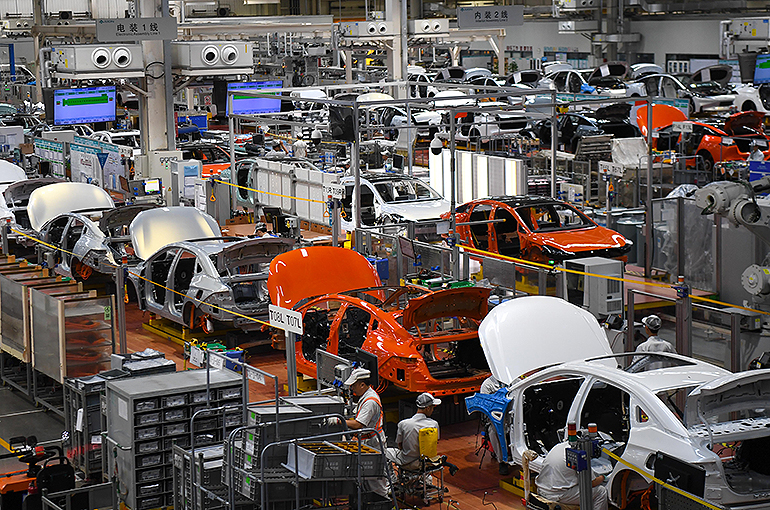 Chinese Carmakers Are Getting Closer to Shaping Global Auto Industry, AlixPartners Says
Chinese Carmakers Are Getting Closer to Shaping Global Auto Industry, AlixPartners Says(Yicai Global) July 6 -- Chinese automakers have passed the 'tipping point' on their path to global relevance and are poised to become the auto industry’s shaping force, according US management consultancy AlixPartners.
China became the world’s leading auto exporter in the first quarter, surpassing Japan, Germany, and South Korea, and Chinese brands will out-sell foreign rivals in their home market this year for the first time in decades, AlixPartners said in a report published yesterday.
Domestic car brands outsold their foreign competitors in China in the first four months of 2023, said Dr. Stephen Dyer, co-leader of AlixPartners China, adding that their market share is likely to reach 65 percent by the end of this decade.
“These developments in China are just the latest in a series of remarkable achievements recently by the China auto industry, including reaching a 25 percent electric vehicle sales penetration rate in 2022, three years earlier than the government target set for 2025,” Dyer said.
“And we expect electric vehicles to reach 35 percent of sales this year,” he noted. “It is crystal clear that the center of gravity for the global electric vehicle industry is China.”
Government support has enabled the country's new energy vehicle sector to prosper. Buying incentives for electric vehicles in China totaled USD57 billion over the last decade, nearly five times that of the United States at USD12 billion, AlixPartners noted.
“Chinese EV players have found a winning formula in offering appealing styling, cutting-edge new technology, and digital customer engagement at an affordable price,” Dyer pointed out.
“They keep their product models ‘fresh’ by fast time-to-market, using digital simulations to replace physical testing and by prioritizing engineering resources on attributes that customers value most while being willing to accept 'good enough' performance on traditionally valued attributes, such as ride and handling and noise and vibration,” he said.
But only a handful of EV makers are profitable due to the high cost of batteries and lack of scale, according to AlixPartners. Just 25 to 30 of the more than 160 Chinese NEV brands will be financially viable by 2030, with consolidation expected, it stressed.
“Even with the best-in-class operations, it takes up to 400,000 units of annual production to reach breakeven scale,” Dyer said. “Over 2/3 of the current China EV brands haven't had any sales in the last year, let alone achieved scale volume.
“For those few who survive long term, it will require deep pockets with cash to carry them through the financially lean years,” he said. “There will certainly be some global winners among the current crowd of Chinese EV companies.”
To be competitive, global automakers need to radically change how they do business in China and their home markets, including making customer-focused tradeoffs that favor technological features, speed to market, cost, and accepting the higher risk that comes with those pursuits, the report noted.
Editor: Martin Kadiev